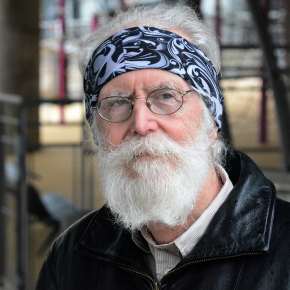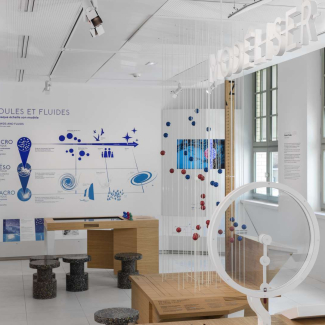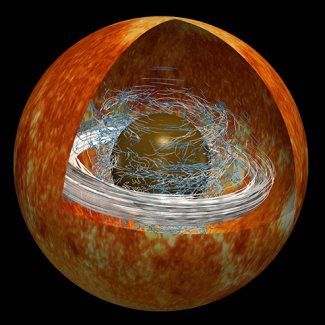
Abel Prize 2024 awarded to French CNRS mathematician Michel Talagrand
The Norwegian Academy of Science and Letters has decided to award the Abel Prize for 2024 to Michel Talagrand, who carried out his research career at the CNRS. He is receiving the equivalent of the Nobel Prize in Mathematics "for his groundbreaking contributions to probability theory and functional analysis, with outstanding applications in mathematical physics and statistics."
Often seen as the Nobel Prize for mathematicians, the Abel Prize rewards the work of a mathematician as a whole. Michel Talagrand receives the prize for his work in probability theory and stochastic processes. From the outset, the development of probability theory was motivated by problems that arose in the context of gambling or assessing risks. The common theme in Michel Talagrand's groundbreaking discoveries is working with and understanding the random processes we see all around us. It has now become apparent that a thorough understanding of random phenomena is essential in today's world. For example, random algorithms underpin our weather forecasting and large language models.
The modern world is a constant flow of random events, and understanding that randomness has impacts on everything from business logistics to condensed-matter physics. Much of Talagrand's work involves understanding and utilising the "Gaussian distribution", often better known as the "normal distribution" or – thanks to its shape – the "bell curve". Our whole life is guided by the Gaussian distribution: the weight of babies at birth, the test results students get at school and the ages athletes retire at are all seemingly random events that neatly follow the Gaussian distribution.
Three specific areas
The Abel Prize is given for three specific areas of Talagrand's work:
- Suprema of stochastic processes – A stochastic process produces a sequence of random values, and the "supremum" is the largest value to be expected from a collection of those values. If the height of waves crashing on a beach is a stochastic process, it is useful to know what the largest wave to hit the beach next year is likely to be.
- Concentration of measures – Counterintuitively, when a process depends on a range of different sources of randomness, instead of getting more complicated, it is possible for the different random factors to compensate for each other and produce more predictable results. Talagrand has given sharp quantitative estimates for this.
- Spin glass – Leaving abstract probability theory behind, a "spin glass" is a special form of matter that atoms can arrange themselves in, much to the initial surprise of physicists. Talagrand used his knowledge of statistics and probability to prove limits on how spin glass matter can behave, and thereby completed the proof of Giorgio Parisi’s Nobel Prize winning work (2021).
Michel Talagrand was born in 1952 in France, and he obtained his PhD in mathematics in 1977 from the University of Paris VI. He spent some years at Ohio State University in the US. Recruited by the CNRS in 1974, he studied until he retired in 2017 functional analysis, then probability and its applications. He was assigned to a laboratory, the Mathematics Institute of Jussieu-Paris Rive Gauche shared by the French National Center for Scientific Research, Sorbonne University and Université Paris Cité. He is married and has two sons. Member of the French Academy of Sciences, this former research director has receved over ten prizes, including the Shaw Prize in 2019.
"Congratulations to Michel Talagrand, whose outstanding research has had a considerable impact on mathematics and its applications. This award, which recognises his entire career at the CNRS, testifies to the excellence of French mathematics. It also serves as a reminder of the absolute urgency of investing in this discipline, which is vital for research, education, the major challenges facing society and our country's economy alike", emphasises Antoine Petit, Chairman and CEO of the CNRS.
Rushes can be provided on request: presse@cnrs.fr
About the Abel Prize
- The award ceremony will take place in Oslo on 21 May 2024
- The Abel Prize is funded by the Norwegian Government and amounts to NOK 7.5 million
- The prize is awarded by the Norwegian Academy of Science and Letters and presented by King Harald V
- The choice of the Abel laureate is based on the recommendation of the Abel Committee, which is composed of five internationally recognised mathematicians.
For more information, please visit www.abelprize.no


